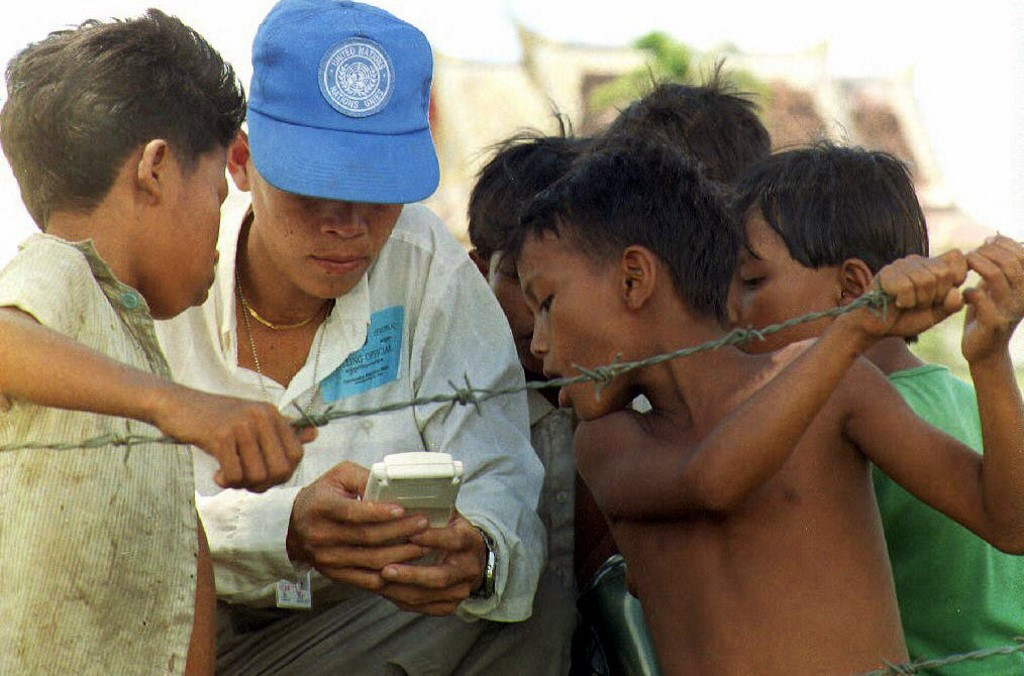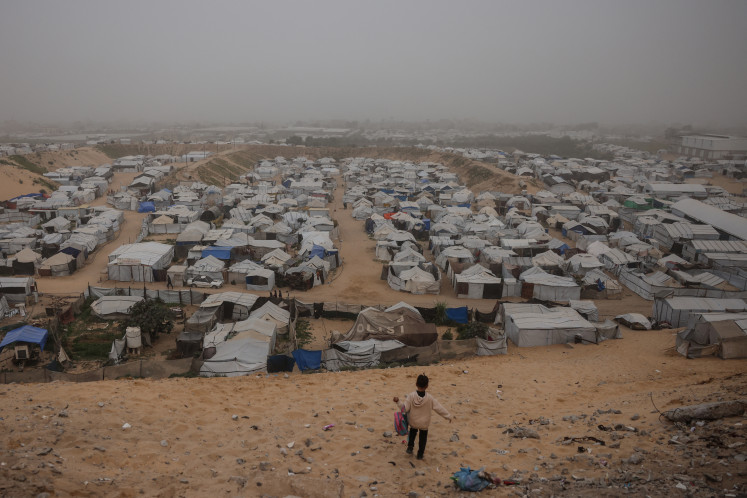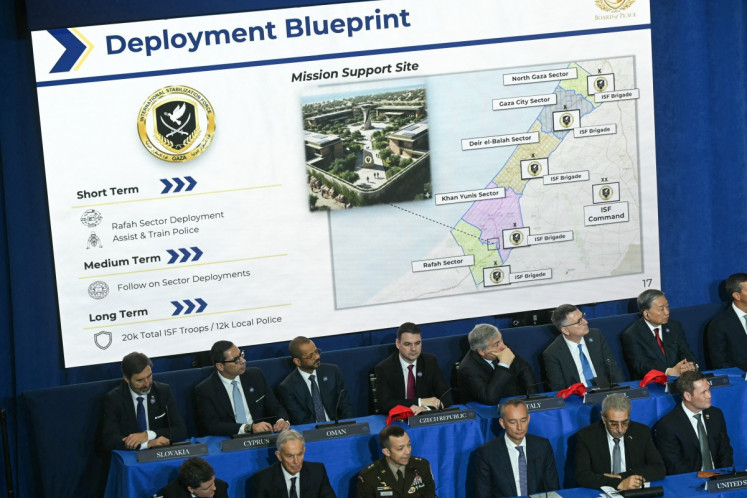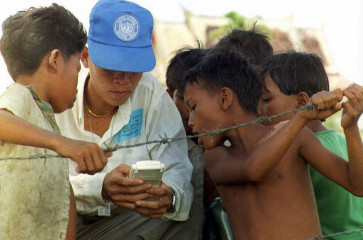Popular Reads
Top Results
Can't find what you're looking for?
View all search resultsPopular Reads
Top Results
Can't find what you're looking for?
View all search results'Mission impossible': UN in Cambodia showed limits of nation building
For Sam Sophal, who survived the Khmer Rouge genocide only because his mother bribed Khmer Rouge executioners with her silver watch, the promise of peace was irresistible.
Change text size
Gift Premium Articles
to Anyone
 Children look on as a Cambodian UNTAC election worker plays a pocket-size computer game during a break 27 May at a mobile polling station in the outskirts of the Cambodian capital. Most of Cambodia's provinces were quiet 27 May as turnout reached 86 percent of the country's 4.7 million registered voters with only two days of polling left. (AFP/Romeo Gacad)
Children look on as a Cambodian UNTAC election worker plays a pocket-size computer game during a break 27 May at a mobile polling station in the outskirts of the Cambodian capital. Most of Cambodia's provinces were quiet 27 May as turnout reached 86 percent of the country's 4.7 million registered voters with only two days of polling left. (AFP/Romeo Gacad)
J
ust over 30 years ago, a crackling radio in a refugee camp on the Thai border brought Sam Sophal word that the United Nations was coming to his war-ravaged homeland of Cambodia.
For Sam Sophal, who survived the Khmer Rouge genocide only because his mother bribed Khmer Rouge executioners with her silver watch, the promise of peace was irresistible.
The UN Transitional Authority in Cambodia (UNTAC) arrived on March 15, 1992, with great expectations, the first UN nation-building operation after the collapse of the Soviet Union sparked hope that democracy would flourish around the world.
But long before last year's shambolic fall of Afghanistan and the costly international missions in Iraq, Kosovo and elsewhere, Cambodia would serve as an early warning of the flaws and limitations of nation building.
At the time, UNTAC was the most ambitious and expensive UN mission but despite its $1.6 billion cost and $20 billion in subsequent international aid, hopes of creating a vibrant democracy faded long ago.
"I felt very proud during the UNTAC time because I was the first generation to bring peace to Cambodia," says Sam Sophal, 60, who got a job as a translator with the mission soon after its launch.
"Now I see we have gone backwards. To one-party rule," he said under the shade of a Jujube tree in his Phnom Penh backyard.

















